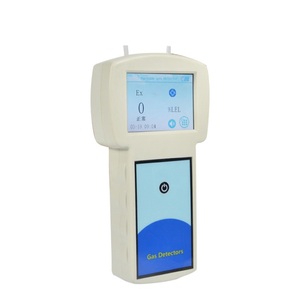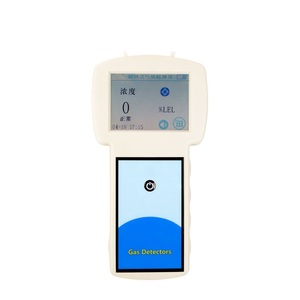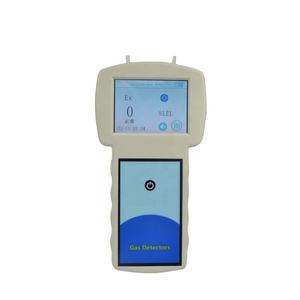Introduction to CH4 Detectors
If you work in industries where methane gas (CH4) poses a risk, a CH4 detector is an essential safety device for ensuring a secure environment. These detectors are designed to monitor the presence of methane in the air, alerting personnel of any hazardous levels and enabling proactive responses. Methane is a colorless, odorless gas that can lead to explosive mixtures in the air, making detection vital for safety in industrial plants, waste management facilities, and natural gas operations.
Types of CH4 Detectors
CH4 detectors come in various types, each suited for specific applications and environments. Understanding these types can help you choose the right detector for your needs:
- Fixed CH4 Detectors: Mounted in a specific location, these detectors continuously monitor for methane levels and provide real-time data to a centralized monitoring system.
- Portable CH4 Detectors: Handheld devices ideal for fieldwork, portable detectors allow workers to assess methane presence in different locations, providing flexibility and convenience.
- Wireless CH4 Detectors: Utilizing wireless technology, these detectors can transmit alerts and data to remote monitoring systems, eliminating the need for cumbersome wiring.
- Infrared CH4 Detectors: These sophisticated detectors use infrared technology to measure methane concentration, offering high precision and reliability for industrial applications.
Function and Features of CH4 Detectors
CH4 detectors come equipped with a range of features aimed at ensuring accurate detection and user safety:
- High Sensitivity: Most CH4 detectors are designed with advanced sensors that can detect even trace amounts of methane, which is crucial for early warning and risk mitigation.
- Real-Time Monitoring: Many detectors provide continuous readings, allowing for immediate awareness of methane levels in the environment.
- Alarm System: Most detectors are fitted with audible and visual alarms that activate when methane concentrations reach a harmful level, ensuring prompt action can be taken.
- Data Logging: Some models include data logging capabilities, enabling users to track methane levels over time for compliance and analysis.
- Easy Calibration: CH4 detectors are designed for straightforward calibration processes to ensure accuracy over long-term use.
Applications of CH4 Detectors
CH4 detectors are employed across various industries to maintain safety and compliance:
- Natural Gas Extraction: In oil and gas fields, CH4 detectors are crucial for monitoring methane emissions and ensuring worker safety.
- Wastewater Treatment Plants: Methane is often produced during waste decomposition, making CH4 detectors essential to manage this risk.
- Mining Operations: Detectors are employed underground to ensure safety against methane accumulations that may cause explosions.
- Food Processing: In facilities where organic waste is processed, CH4 detection is necessary to mitigate risks associated with gas release.
- Residential Applications: Homeowners can also benefit from portable CH4 detectors for monitoring gas leaks in areas with natural gas usage.






















































































































































































































